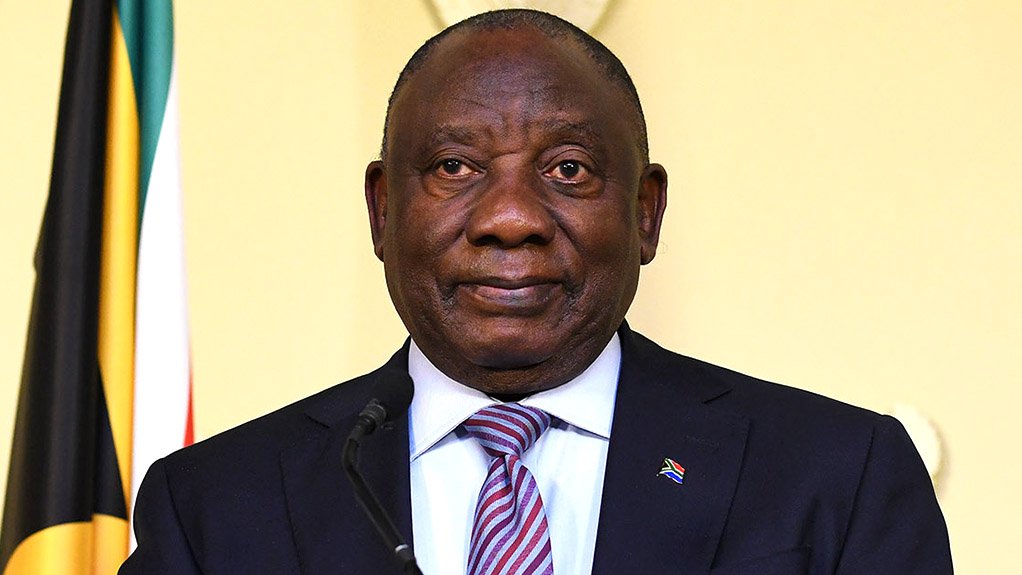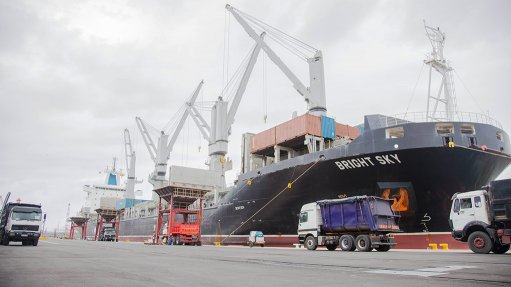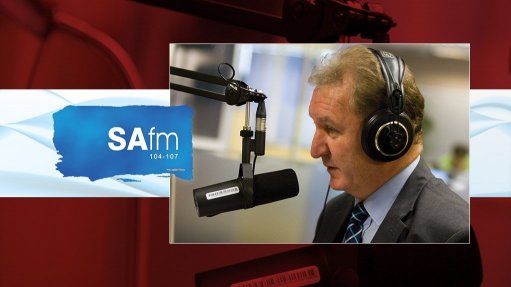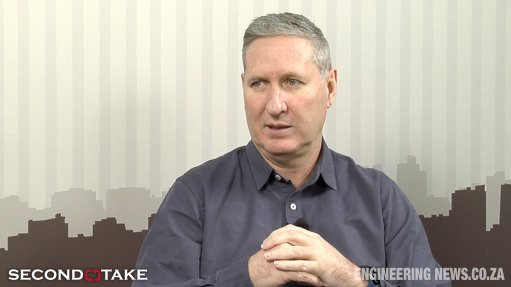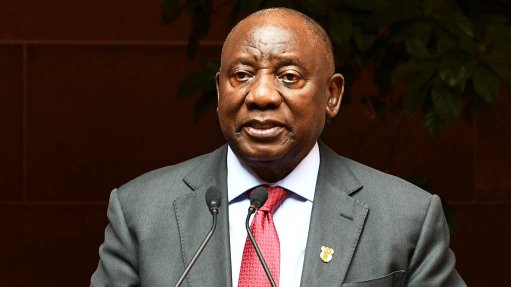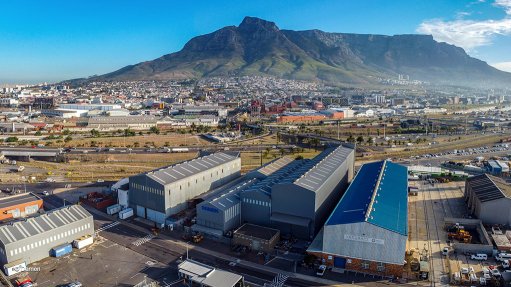Business welcomes finalisation of Cabinet, highlights focus areas for economic growth
Business organisations have responded to President Cyril Ramaphosa’s announcement of a final agreement for a Government of National Unity (GNU) and the new Cabinet, with consensus that an announcement finally being made bodes well for the new administration and provides a platform for it to begin undertaking the necessary work.
North-West University Business School economist Professor Raymond Parsons highlights that the announcement is, as a whole, positive for business and investor confidence.
“The markets are likely to respond positively as they digest the new mix of Cabinet appointments. Political certainty is essential to underpin the investment and job-rich growth that South Africa needs. Although there is a tough road ahead, the challenge is to now consolidate a sufficiently powerful guiding and stable GNU that capitalises on the positive momentum that has been generated by the outcome of the 2024 elections,” he points out.
Parsons calls for the GNU to expedite the implementation of necessary economic reforms, with an emphasis on urgency, as well as strengthening and expanding its collaboration with the private sector.
“The business community will particularly want to interact with the new incumbents of the interlocking economic ‘cluster’ in the Cabinet, as their decisions will be influential in shaping South Africa’s future economic policy environment,” he avers.
He says the first step for the GNU Cabinet should be to quickly outline an agreed economic agenda, that ensures greater certainty in its policies and actions.
“The more reform gains momentum under the GNU, the more policy uncertainty will recede and confidence in South Africa’s economic prospects will expand,” he posits.
Ramaphosa writes in his weekly letter, on July 1, that the incoming government will prioritise rapid, inclusive and sustainable economic growth and the creation of a more just society by tackling poverty and inequality.
“It will continue the economic reforms that are under way in key industries like electricity, telecommunication, water and transport,” he promises.
Ramaphosa asserts that the new administration will build on the progress that has already been made in the drive for greater investment in infrastructure and an improved environment for business.
“Guided by the Statement of Intent, the GNU will safeguard the rights of workers and ensure there is adequate social protection for the poor and vulnerable. The government will invest in South Africa’s people through quality education and healthcare. It will work to build State capacity, address crime and corruption and strengthen social cohesion. The administration will pursue a foreign policy based on human rights, solidarity and peace,” he emphasises.
Ramaphosa informs that the new government will soon hold its first lekgotla to collectively develop the programme of government for the next five years.
This will be outlined in greater detail in the Opening of Parliament Address to be delivered in just over two weeks’ time.
The incoming government will also work together with other formations to convene a national dialogue. All parties, civil society groups, labour, business and other stakeholders will be invited to work together to address the critical challenges facing the nation, Ramaphosa says.
Business Leadership South Africa CEO Busi Mavuso, meanwhile, writes in her weekly newsletter that the new administration’s success will depend on the deals concluded between political parties over the last month.
She also highlights the successes achieved thus far by Operation Vulindlela, with economists at a conference last week putting the value of the unit at anywhere between 2% and 4% of gross domestic product, largely in terms of economic activity that was created or protected by it.
The Bureau for Economic Research estimated that 2% could be added to economic growth if the reforms made by the unit are sustained.
Mavuso acclaims that this shows the importance of having a dedicated delivery unit.
“It should be a central pillar of the new administration and be embraced by Cabinet as a catalyst to make delivery happen across the different portfolios, coordinating reform across government and working to ensure business is involved at the appropriate points,” Mavuso emphasises.
She also calls for the unit to also focus on challenges including water provision and local government.
The South African Chamber of Commerce and Industry (Sacci) maintains its view that the country needs to move from a developing to a developed economy by ensuring that it delivers on the UN Sustainable Development Goals, to successfully and sustainably tackle the challenges of poverty, unemployment and inequality.
“This will not be achievable if there is no meritocracy in the administration of the State and its institutions. It is in this regard that we are not sure what meritocracy template the GNU has itself used in identifying, selecting, and appointing the executive team.
“It is imperative for the government to be transparent in sharing with stakeholders its own ideas on the meaning of merit, in order to avoid randomness in this critical area. An agreement between the political parties does not in itself translate to a scientifically derived process of meritocracy in recruitment, selection, and appointment. The tools to be used to measure and evaluate performance management also remain unclear. Therein lies the risk in performance and delivery,” Sacci states.
It adds that the skills required to manage conflict will be a high priority, owing to conflicting interests and differing policy positions of the various political parties in the GNU.
Also expressing concern was the Federation of Unions of South Africa (Fedusa), over the decision to expand the cabinet. It says that this move seemingly does not take into consideration the financial implications.
"Fedusa believes that this expansion goes against the President’s promises to streamline the government to align it with the priorities and needs of the people. The extra expenses linked to the group of ministers and deputy ministers will worsen the financial struggles experienced by the nation as it will draw funds away from vital public services," it warns.
The federation has highlighted several key focus areas for the administration, including concentrating on policies that foster economic development and stability; ensuring that public services are delivered efficiently; tackling corruption and enhancing good governance; investing in bulk infrastructure; and working towards reducing inequality and promoting social cohesion.
Despite its serious concerns about the new national executive, the federation says it is dedicated to collaborating with the government towards a fair and equal country.
Business Unity South Africa (Busa) CEO designate Khulekani Mathe posits that the reappointment of Enoch Godongwana as Finance Minister demonstrates an ongoing commitment by the government to responsible fiscal policies that will reduce debt and free up spending for productive social and economic development.
Mathe points out that South Africa recently achieved its first primary budget surplus in 15 years, under Godongwana, by reducing bailouts to State-owned enterprises and reducing wasteful or unproductive spending.
“Business hopes to continue working with the government in the public-private partnership that has reduced loadshedding, improved transport and logistics infrastructure and operations, and is strengthening the national capacity to tackle crime and corruption. Over 130 chief executives have pledged their ongoing commitment to this partnership, which has unlocked infrastructure and operational constraints to inclusive economic growth,” Mathe emphasises.
The Small Business Institute (SBI) also welcomes the announcement of a new Cabinet, saying it is the first step towards getting the wheels of government running again after the May 29 general election.
“As the big voice for small business – from all walks of life in our country and subregion – we promise to work collaboratively with all the Ministers chosen by the President for the benefit and prosperity of our small business segment of the economy.
“We believe the National Development Plan aspiration of in excess of 90% of all jobs coming from this segment by 2030 will only be achieved if we redouble our efforts to unleash the potential of small businesses, and work in a focused manner to free up small businesses from the shackles of red tape, late payment and power outages and failing infrastructure,” says SBI CEO John Dludlu.
He adds that the SBI hopes the reform agenda, which began in the sixth administration, continues with fresh impetus. “We would like to see small business being at the core of this agenda.”
Comments
Press Office
Announcements
What's On
Subscribe to improve your user experience...
Option 1 (equivalent of R125 a month):
Receive a weekly copy of Creamer Media's Engineering News & Mining Weekly magazine
(print copy for those in South Africa and e-magazine for those outside of South Africa)
Receive daily email newsletters
Access to full search results
Access archive of magazine back copies
Access to Projects in Progress
Access to ONE Research Report of your choice in PDF format
Option 2 (equivalent of R375 a month):
All benefits from Option 1
PLUS
Access to Creamer Media's Research Channel Africa for ALL Research Reports, in PDF format, on various industrial and mining sectors
including Electricity; Water; Energy Transition; Hydrogen; Roads, Rail and Ports; Coal; Gold; Platinum; Battery Metals; etc.
Already a subscriber?
Forgotten your password?
Receive weekly copy of Creamer Media's Engineering News & Mining Weekly magazine (print copy for those in South Africa and e-magazine for those outside of South Africa)
➕
Recieve daily email newsletters
➕
Access to full search results
➕
Access archive of magazine back copies
➕
Access to Projects in Progress
➕
Access to ONE Research Report of your choice in PDF format
RESEARCH CHANNEL AFRICA
R4500 (equivalent of R375 a month)
SUBSCRIBEAll benefits from Option 1
➕
Access to Creamer Media's Research Channel Africa for ALL Research Reports on various industrial and mining sectors, in PDF format, including on:
Electricity
➕
Water
➕
Energy Transition
➕
Hydrogen
➕
Roads, Rail and Ports
➕
Coal
➕
Gold
➕
Platinum
➕
Battery Metals
➕
etc.
Receive all benefits from Option 1 or Option 2 delivered to numerous people at your company
➕
Multiple User names and Passwords for simultaneous log-ins
➕
Intranet integration access to all in your organisation



